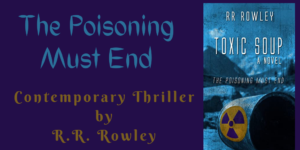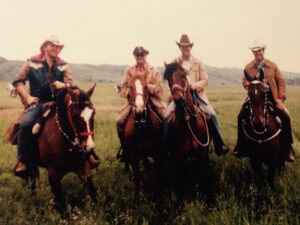As a novelist, poet, and short story writer, do you approach writing in the same way, regardless of form? Or do you have a different process for each?
I write a lot about the writing before I ever start a scene. Right now I’m in a new novel and I have 138 pages of writing but no novel. No scenes. I have written an ending, but chances are it won’t be the final ending. I always write an ending first because the ending is a template for the opening. The novel comes out of the writing about the characters and what they want. To me, all characters are consumed by three things: Want, Need, Can’t. If I can find out what a character wants, I can translate that into story. If I know what a character needs, I have a handle on the psychology and the structure of mind. If I know what the character can’t have, I get a feeling for action, because of the Antagonist—the character who wants what the protagonist wants and so you have conflict and conflict leads to one of two resolutions: either the protagonist (I use that instead of Hero just to be contrary) clams up, closes up and lets the bad guy tromp all over her or she stands up and nocks an arrow in her bow and kills the son of a bitch.
To me, story is a competition for a resource base, and fiction is the artful infusion of the past into the narrative present. This means that I have to know a lot about the characters, so I write about them—where they were born, what kind of ice cream they liked as a kid, how they dressed, how their mother mistreated them, how their father raped them, how that uncle destroyed their innocence. Then, that done, you have a pretty good start on dialogue. How? “Where did you get that scar?” Joe asks Ellen. “I don’t want to talk about it,” she says. Okay, now we have the secret that Joe will do his damnedest to ferret out, and Ellen will fight tong and hammer not to reveal it. So the past comes into the present and through revelation the story gets told. The resource base is that secret. Story is competition for a resource base (the resource base can, of course, be more complex—money, land, even a jeweled falcon from Charles V to the Knights Templar). Joe in the end knows that Ellen’s scar came from that violent encounter with the uncle in the basement when he ripped off her crucifix and cut her with a chisel. Joe either accepts Ellen’s ravishment and loves her to death or he abandons her as impure, unclean, damaged. I have two collections of short stories, several screenplays, and a dozen novels and every story gets the same treatment. Without that process, the characters are empty and uninteresting. I’ll come back to character later in this interview.
Poetry is another beast altogether. In my early work, I wrote in meter and rime. I did not know what a poem was and so continued for a long time working the traditional veins. Later, I came to understand something of the Zen of poetry and so started looking deeper into the craft and came up with a set of guidelines—can’t call them rules, because if you disavow rime and meter, there are no rules, but there can still be structure. The first techniques I came to understand were these: Music first; breath second; rhythm and beat third; story last. You can see that this is the opposite of fiction where the first element wants to be Story followed by Structure followed by Style. Once the traditional shell was cracked, I got into vowel harmony and from vowel harmony I came to understand the notion of the transposition doublet which is akin to assonance. For example in breathless, the lead poem in Satori, poems you find this:
Seventeen and dreaming,
Bill Hansen and I flew up 99
in a Ford Fairlane—holy barbarians
who craved a satori that never came.
We carved our way out of the valley to the Bay
where the rhythms of poetry
were a junkie’s waking visions
his veins choked with banned chemicals
where spaced out garbage men
thrashed through cannabis hallucinations
of cruel women in black stockings and turtlenecks
women who never said yes
women who smoked and always said maybe
If you read those lines sotto voce you read story—it’s a journey—but that’s the final form. If you read the lines aloud, you’ll hear things, for instance the vowel harmony of –teen and dream; you’ll hear the alliteration of flew-Ford-Fairlane; you’ll hear the leonine rime of way-Bay; you’ll see the transposition doublet craved-carved; you’ll hear the rhythm of repetition where-where; women-women-women; you’ll hear the polarity never-always.
As I wrote more poetry, I developed an esthetic focused more on language and its rhythms than on the story of the poem. I asked myself these questions: Is there an esthetic base we can use, or has the notion of free verse broken us loose so that each poet has a poetics that serves that poet alone? Rather than sit down with pen and “critique” holding to some phantom notion of “poem” can you start with a set of elements and write from it?
But that left me asking the questions—where does a poem start and how does it start?
Zen poetics.
Learn how to wait.
Quiet the noise.
Sing the vowels
Poetry is pre-linguistic.
Language is a vehicle for capturing emotion
Freedom without discipline is chaos
Energy is language working for you
Patience is killing your ego
Patience plus energy equal discipline
Energy plus discipline equal power
Power plus strength equal grace
Grace is the goal of our writing
The universe is one long poem, and each poet gets a moment, a piece of it from time to time. It doesn’t matter which part of it you are working on at a given moment, which poem, because each one is just part of the larger fabric, given to you to work out in detail. Once it is given to you, the great poem abandons you, says I don’t care what you do now. If you fall on your face, it’s because you don’t have the skill to take the given and do something with it.
In all writing, Discipline is the poet’s obligation to the gift. Music first.
What role do you think fiction plays in contemporary society?
It’s massive if you think of films as fiction. The way I see it, films have rewired our brains to expect a certain sequence in the story line. We are more Aristotelian than ever—three acts, violent action rising to a climax, catharsis—turn off the idiot-box and go have a beer. What we as novelists can learn from the screenwriters is that time is money. What we as novelists don’t learn from the screenwriters is the Mantra of Movieland: stories are told with action and image. The perfect movie is silent. The basic unit of story is the scene. So, get into a scene late, get out early, enter as close to the climax as possible. Don’t waste words. Words are time. Time is money.
Let’s break it down into two categories—entertainment and education. Education—what the European writers call the bildungsroman, what we now call the “coming of age” novel—showing the enlightenment of the hero is now defunct in the novel because of the democratization of experience. Your ignorance is as good as my knowledge, so there is no learning left.
The death of the literary novel lies in the success of the money-time complex we call blockbusters. Entertainment—we are entertained by blowing shit up and killing. Two areas of contemporary fiction interest me—not as a writer but as an observer of culture. A friend of mine just returned from a year in the Balkans. The first words I heard from him were, “America’s primary export is violence.” Okay, so how do we, as novelists, fit into that? In the classical world, violence was always off stage. If you ever saw killing, there wasn’t much blood, but you did see the aftermath and the effect. Now, in this, the Age of Torture and Excess, we see it all. The knife goes in, the carotid artery spurts blood for miles in all directions, the electric shock is applied, the screams give us chills and the blood fills our eyes.
When you, as novelist, try to tame that pack of wild horses, you better be ready to self-publish, because you don’t stand a chance. Misguided realism is ruining us at the same time it is preparing us for Armageddon.
The second area that interests me is the paranormal—by that I mean zombies and vampires. I do not understand vampires, but I have a pretty good feel for zombies. It goes like this—fear and collapse. In a way, it starts with the Trojan War and The Iliad. Inside that wooden horse, there is disaster. You let it in, and you’re dead. The Greeks break into the closed circle called Troy carrying destruction, and they kill just about everyone. End of Troy. Collapse. Zombies are an apt metaphor for the modern world where our greatest fears are 1) fear of infection; 2) fear of invasion; and 3) fear of collapse. Zombie-land is always about survival against great odds. In zombie-world, society and civilization are on the verge of total collapse. The writers who succeed in writing zombieish are telling us that we are about finished as a race and that extinction is just a bite away—and it’s our own fault. The zomboid writers show us with the veneer stripped way, the bare wood showing, and our evolutionary truths revealed—we become prey once again. Civilization is a thing of the past and all that’s left is the Tribe. The Unlucky Few who survive. So where does that leave us? Writing the dead genres such as mystery novels and romance? Writing another zombie-blood orgy? How about a good torture movie? The big question for me is: Can there be a non-filmic writing that makes any sense? I’ll come back to that question later.
Your California Quartet novels revolve around four different coming-of-age stories, what drew you to link your novels through that theme rather than a repeating character?
Most American men put off growing up as long as possible. We hate to let go of our adolescence and so we look back on it with nostalgia which becomes a metaphor for the lost innocence of America and the breakdown of the American dream. We call them The Boys of Summer because they are perpetual hope even though we know that by early Fall, all the dreams but two will be shattered.
I don’t like to repeat myself. Every novel has its own language and style.
In the Quartet, I was as interested in the language as I was in the story so each book has its own style. In Trio, the final book, I wanted to write a novel whose style was the absence of style. Doing that lets you write as close to emotion as you can get because you don’t let language get in the way. The task in Trio was to write without using the word feeling except in a concrete sense—feel the floor, the skin. Sort of like trying to write a novel without using the letter E the way Georges Perec did.
I turned away from the repeating character model when the books were taking shape. I knew I didn’t want the long character arc, but instead imagined what I call Aging the Archetype as a device. This idea gave me freedom to do with time what I wanted so the novels in the Quartet are not chronological but develop their own time and place. Only the Archetype matters. The Quartet works this way: in The Deification, a lost boy living on the street, dreams of becoming a poet.
In Valley Boy, you see teen-agers at the mercy of the world—they have no idea what’s going on, they don’t have the rules they need to become men and so they make horrendous mistakes knowing they will end up in the same place their fathers did. In The Book of Changes, the boys have become young men acquiring life-tools and as they age, they face all the cruelty and loss that comes with the abandoned adolescence and the wicked truth.
In Trio of Lost Souls, the boys have aged into young men and the young men have grown old. They understand life, they have the tools they need and they no longer let life act on them. They become the decision makers. And they are capable. They are flawed, they have been hurt, and their dreams have cost them, they are on the verge of destruction, but they still know they can do more. Triohas a socialist subtext in which the characters recognize that together they can do more than any one of them can manage alone.
Trio is the most political of the Quartet. The arc for the Quartet then is from going it alone to understanding that you can’t do it alone. In America, despite the Horatio Alger myth, there are no self-made men. The idea is that the novels have a ring of truth without being factual. Realism is factual and if you obey the maxim write what you know, your novel will tend to be autobiography. I did not want to write a memoir or an autobiography. The characters are not just phases of me.
In Blood and Gabriela and The Widow there is an entirely different way of looking at the novel.
Check back on Jan 15th for Part II



